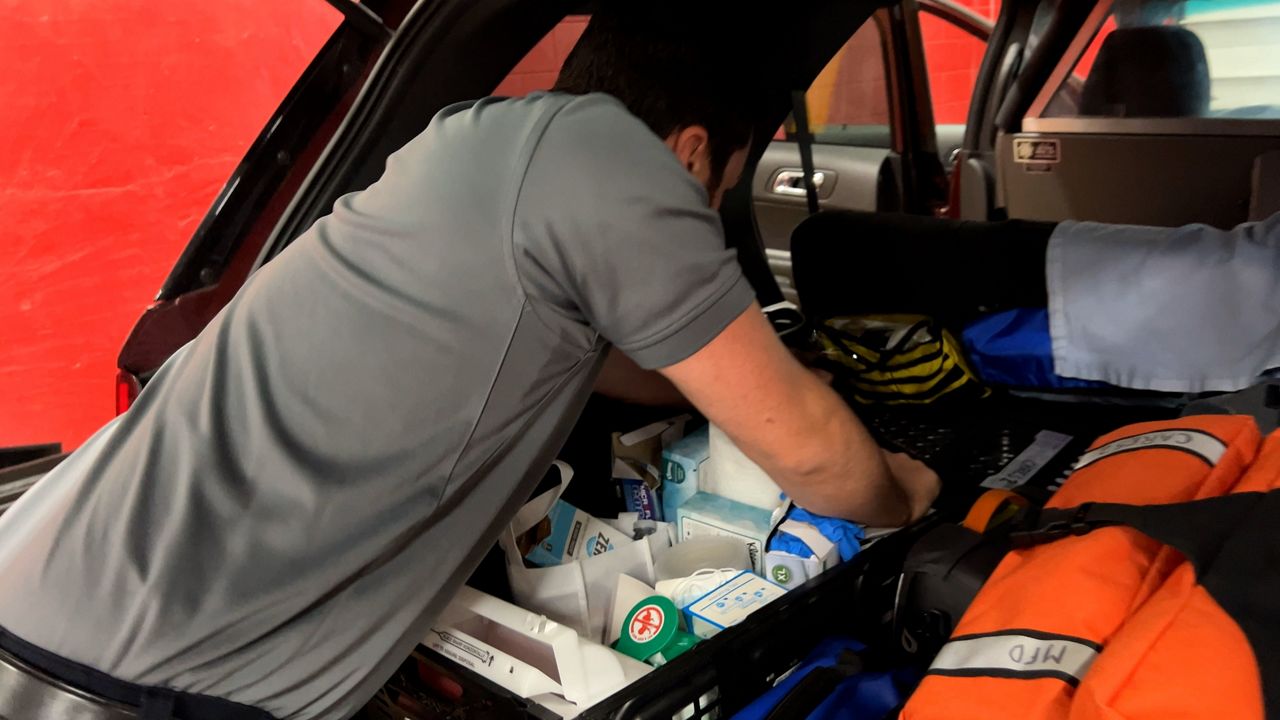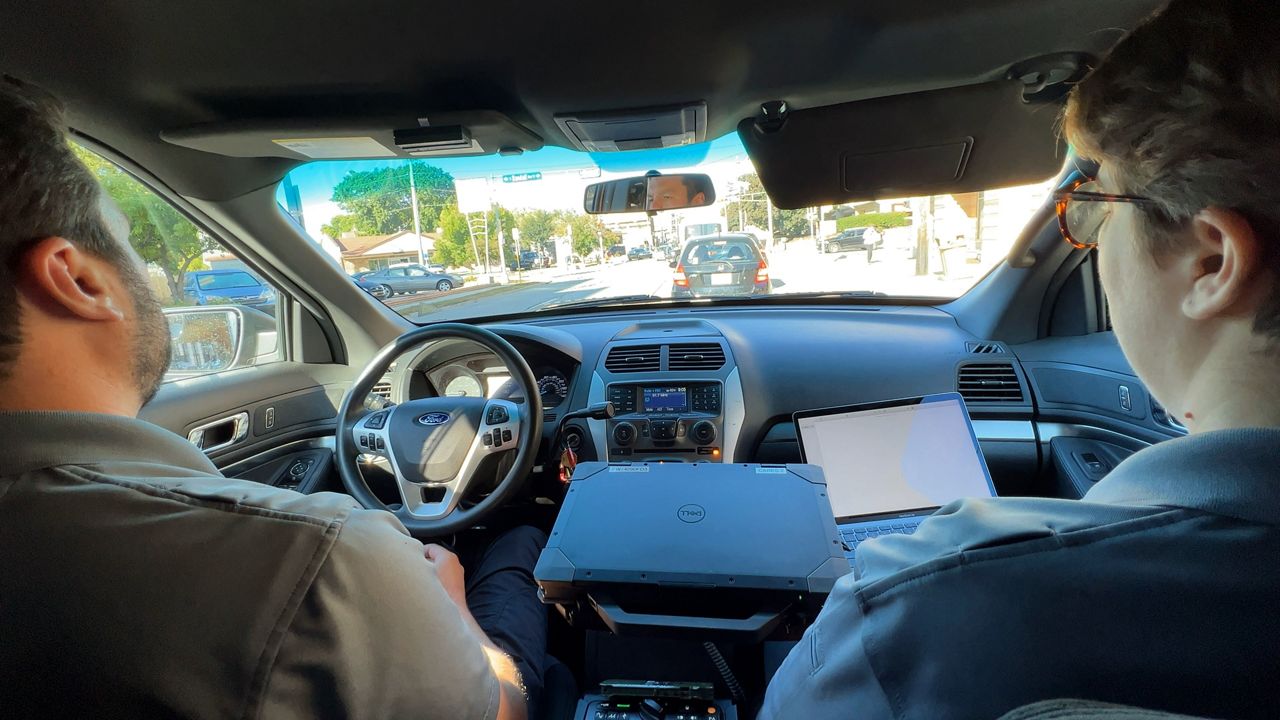MADISON, Wis. — Steven Button has been a paramedic since 2011. Most of his career has been spent in the back of an ambulance.
It wasn’t until recently when he joined the Madison CARES, or Community Alternative Response Emergency Services Team, that he felt like he was making a real difference.
“Critical thinking, connecting [people] with resources in the community or offering someone to talk to, to me that means we are offering a better service,” said Button.
The CARES Team launched in Sept. 2021. Each team consists of two members: one from the Madison Fire Department community paramedics and the other a Journey Mental Health crisis worker.
“99% of the time we are not responding with lights and sirens, we are responding in a calm manner and being a friendly person to talk to,” said Button.
Button never goes out on calls alone. He often finds himself paired with Makenzie Livingstone, who is a crisis worker for the CARES Team.
“I am really passionate about this work. I have been doing it for about five years, co-responding, only one year here in the Madison area,” said Livingstone.

Teamwork plays a big part in the team’s success.
“You don’t know what you are going to go into, you don’t know what is going to be happening,” said Livingstone. “You don’t know if their reaction is medical or mental health so using both of our expertise has been helpful to provide these services.”
Before the team was launched, Madison police would respond to behavioral health emergencies.
Now, if calls are flagged as non-violent by the 911 dispatch center, the CARES Team responds.
“What’s great about the CARES Team is we can bring the services to the people,” said Livingstone. “When they are in crisis, sometimes they are at the worst time of their life and it is nice to be able to have someone come to them instead of them going to the service.”
When CARES first started, they had one team working out of the Willy Street fire station on weekdays from 11 a.m. to 7 p.m. At that time, they only responded to the highest intensity calls.
By the end of 2021, the team expanded and started covering the entire city. They now have two buildings they work out of. One is on Willy Street and the other is on Fish Hatchery Road.
Sarah Henrickson is the team manager for Journey workers in CARES. She said as the team continues to grow, so do the number of calls.
“We have seen the number of calls go up as we have increased our hours, our staffing and our overall capacity and we now have well over 3,000 calls for service,” said Henrickson.

The team now works 8 a.m. to 8 p.m. during weekdays and from 10 a.m. to 8 p.m. on weekends. Team members are not armed and are not trained to handle violent situations.
Henrickson said dispatch does a great job of determining what calls her team will respond to and very rarely have they been worried about their lives.
“Only 3% of our patients from CARES have been turned over to law enforcement for safety reasons,” said Henrickson. “It also helps that our staff receive a lot of training and have a lot of understanding about behavioral health, about de-escalation, about connecting people to resources.”
As for Button and Livingstone, they said they are happy to be making a difference in the community they live in.
If you are experiencing a behavioral health crisis, you can call 911 and request a crisis intervention-trained officer or the CARES Team.
Other resources include:
- Journey Mental Health Center emergency line: 608-280-2600
- Dane County’s crisis hotline: 608-280-2600
- Wisconsin Suicide and Crisis Lifeline: 988 (call or text)




